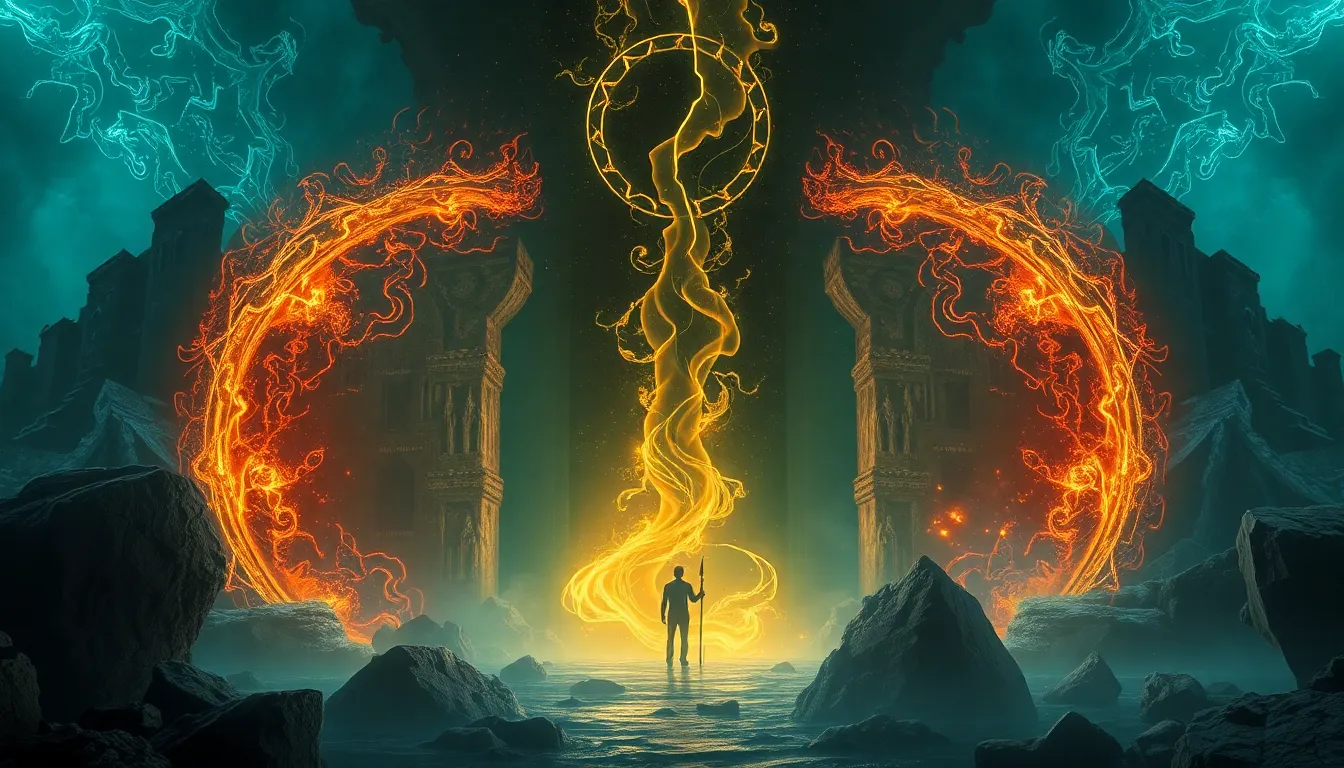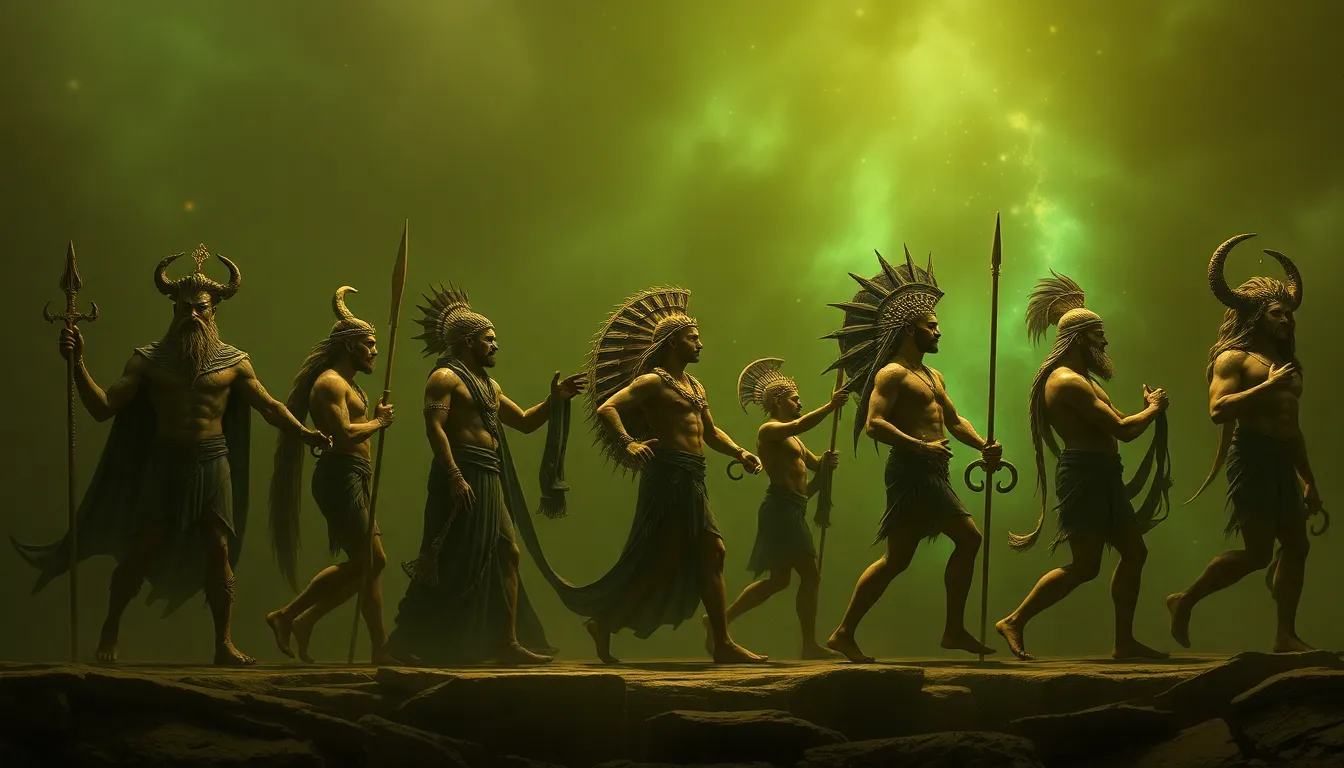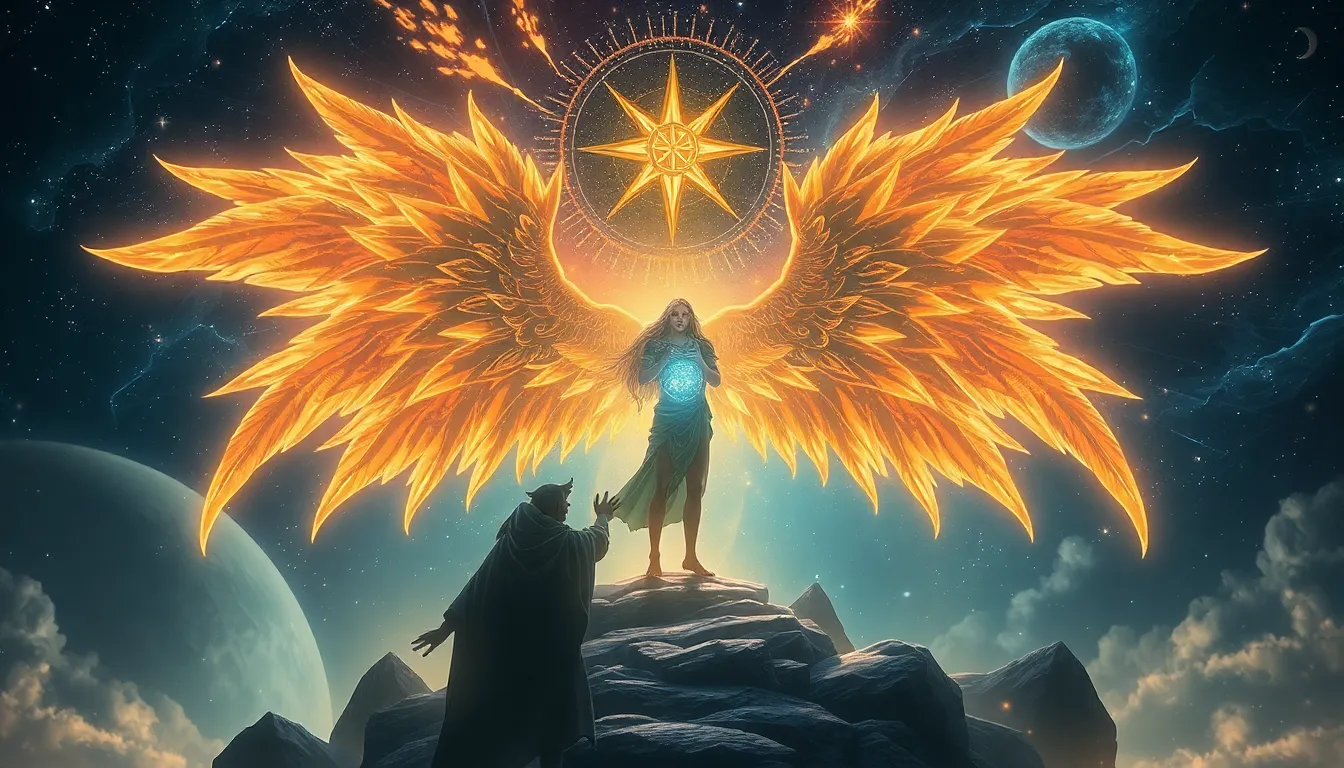The Mythical Odyssey: Transformations That Challenge Our Beliefs
Introduction to Mythical Odysseys
Mythical odysseys are narratives steeped in cultural significance, often traversing the realms of the supernatural and the human experience. These stories encapsulate profound truths and moral lessons, reflecting the values and beliefs of the societies that birthed them. Central to many of these odysseys is the theme of transformation, where characters undergo significant changes that challenge existing norms and beliefs.
The Nature of Transformation in Mythology
Transformation is a recurring motif across various mythologies, representing change, growth, and the duality of existence. From shapeshifters to gods and heroes, these figures embody the complexities of identity and the human condition.
- Shapeshifters: Characters like Loki in Norse mythology illustrate the fluidity of identity and the unpredictability of fate.
- Gods: Deities such as Zeus and Aphrodite frequently transform themselves and others, showcasing their power and the consequences of desire.
- Heroes: Figures like Hercules undergo trials that lead to physical and emotional transformations, symbolizing the journey toward self-discovery.
Mythical Transformations: Symbolism and Meaning
The symbolism behind transformations in myths often reveals deeper truths about humanity. These transformations can serve as metaphors for:
- Personal Growth: Characters often emerge from transformations wiser and more self-aware.
- Societal Critique: Transformations can challenge societal norms, prompting audiences to reassess their beliefs.
- Identity Exploration: The shifting identities of characters mirror the complexities of human identity, including gender and cultural roles.
Case Study: The Greek Myth of Metamorphosis
One of the most poignant examples of transformation is found in the Greek myth of Daphne and Apollo. In this tale, Apollo, the god of music and prophecy, becomes enamored with the nymph Daphne, who desires freedom and autonomy. To escape Apollo’s advances, Daphne is transformed into a laurel tree.
This metamorphosis represents the struggle between desire and identity, illuminating themes of power and consent. It raises questions about the nature of love and the sacrifices made in its name, emphasizing that transformations can come at a great cost.
Cultural Variations: Transformations in World Mythologies
Transformative myths can be found in cultures worldwide, each offering unique insights into the human experience. For instance:
- Native American Myths: Stories of trickster figures like Coyote demonstrate the importance of adaptability and the fluid nature of morality.
- African Folklore: Figures such as Anansi the Spider embody transformation as a means of cleverness and survival.
- Asian Mythologies: The tale of the Buddha’s enlightenment illustrates personal transformation through introspection and the pursuit of truth.
These cultural narratives highlight how context shapes perceptions of transformation, emphasizing the diverse ways societies interpret and value change.
The Psychological Perspective: Jungian Archetypes and Transformations
Carl Jung’s theories on archetypes provide a psychological framework for understanding mythical transformations. Jung posited that myths resonate with universal themes that reflect our inner struggles and aspirations.
Transformative figures in mythology often align with Jungian archetypes such as:
- The Hero: Embodies the journey of self-discovery and personal transformation.
- The Shadow: Represents the darker aspects of the self that must be confronted and integrated.
- The Anima/Animus: Explores the balance of masculine and feminine qualities within individuals.
These archetypes illustrate how mythical transformations resonate with individual psychological journeys, offering insights into personal growth and self-acceptance.
Modern Interpretations of Mythical Transformations
Contemporary literature, film, and art continue to draw on the theme of transformation found in mythology. Modern interpretations often challenge current beliefs and values, reflecting societal changes and evolving cultural narratives.
- Literature: Novels that explore identity, such as “The Brief Wondrous Life of Oscar Wao” by Junot Díaz, incorporate transformative elements reminiscent of myth.
- Film: Movies like “Black Panther” utilize mythological transformations to explore themes of heritage and identity.
- Art: Contemporary artists often depict transformation as a means of critiquing societal norms and expressing personal narratives.
The Role of Myth in Shaping Beliefs about Identity
Myths play a crucial role in shaping both personal and collective identities. Through stories of transformation, individuals find frameworks for understanding their own experiences and identities.
Transformation stories impact our understanding of:
- Gender Roles: Myths challenge traditional notions of masculinity and femininity, encouraging more fluid interpretations.
- Race and Ethnicity: Transformative narratives can highlight struggles against oppression and the quest for empowerment.
- Social Roles: Myths often question societal expectations, inspiring individuals to forge their own paths.
Lessons from the Odyssey: Embracing Transformation in Our Lives
The themes of transformation in mythology offer practical insights for personal growth. Embracing change can lead to:
- Self-Discovery: Understanding oneself through the lens of transformation can foster personal development.
- Resilience: Learning to adapt and thrive amidst change builds strength and character.
- Challenging Beliefs: Questioning outdated beliefs can lead to a more authentic and fulfilled life.
Conclusion: The Enduring Power of Mythical Transformations
The exploration of mythical transformations reveals their profound impact on human beliefs and values. From ancient tales to modern interpretations, these narratives challenge us to reconsider our identities and the world around us.
As we reflect on these transformations, we recognize their ongoing relevance in shaping our understanding of the human experience, encouraging us to embrace change and pursue growth in our own odysseys.



